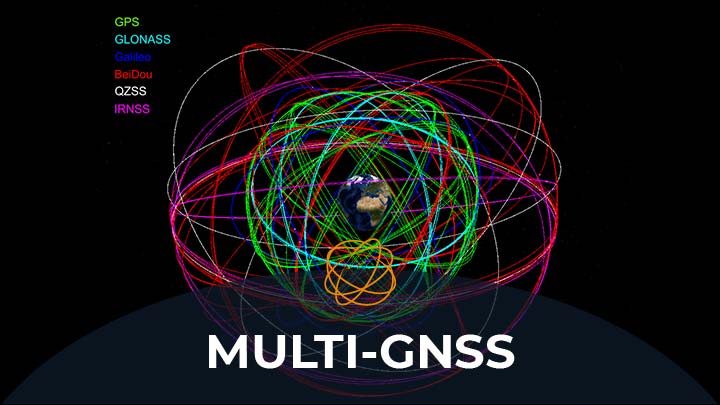Multi-GNSS Pilot Project
Established: 2003
Chair: Peter Steigenberger
Mailing List: IGS Multi-GNSS Pilot Project Mailing List
Charter
The past decade has seen tremendous changes in the availability and diversity of satellite navigation systems on both, a regional and a global scale. Next to the legacy GNSSs GPS and GLONASS, three regional systems (QZSS, BeiDou-2, and IRNSS/NavIC) are providing operational services in the Asia-Pacific region. With BeiDou-3 and Galileo, a total of four systems are now offering services on a global scale. By now, the majority of all navigation satellites support dual-frequency open service signals for civil users that satisfy a growing interest for high precision navigation in mass-market applications.
The IGS has been mindful of this evolution and systematically built-up new capabilities in support of multi-constellation GNSS (or simply, multi-GNSS) data collection and product generation through its Multi-GNSS Working Group and the Multi-GNSS Experiment (MGEX), which was later transitioned into the Multi-GNSS Pilot Project. Key accomplishments include the full incorporation of the initial multi-GNSS permanent ground stations into the IGS network, the harmonized provision of multi-GNSS data through the IGS data centers, and the generation of a diverse set of new multi-GNSS products by new and long-established IGS analysis centers.
The IGS defines multi-GNSS excellence as a primary goal for its new Strategic Plan. However, despite substantial progress and the efforts of numerous other Working Groups to incorporate new GNSSs into their work, it has been recognized by the IGS Governing Board that a homogenous level of support for all navigation systems has not yet been achieved.
In support of this goal, the Multi-GNSS Working Group continues to serve as a catalyst for multi-GNSS related activities within the various IGS working groups, and the IGS as a whole. As of 2020, key goals of the Multi-GNSS Working Group are:
- Conduct and supervise the Multi-GNSS Pilot Project (“MGEX”) with the near-term goal of a comprehensive integration of multi-GNSS tracking and analysis into all IGS components and activities.
- Consult and liaise with other IGS Working Groups to ensure adequate consideration of all GNSSs in standards and data formats. This includes, but is not limited to, receiver data, antenna information, biases, and conventions for precise point positioning.
- Coordinate and promote the generation of comprehensive multi-GNSS orbit and clock products, and support the build-up of a multi-GNSS orbit/clock product combination process within the IGS.
- Interact with GNSS providers and manufacturers to increase awareness of user needs in the field of precise multi-GNSS, and promote the release of relevant information and the proper support of new standards.
- Increase public awareness for multi-GNSS related work in the IGS and facilitate access to relevant information through the IGS multi-GNSS website.
Beyond the traditional high-altitude navigation satellite systems, the Multi-GNSS Working Group will also offer a platform for exploring the use of constellations in low Earth orbit for stand-alone navigation and GNSS augmentation.
[Revised Dec 2020]
Members
| Name | Affiliation | Country/Region | Contribution |
|---|---|---|---|
| Kyohei Akiyama | JAXA | Japan | JAX analysis center |
| Zhigou Deng | GFZ | Germany | GFZ analysis center |
| Jan Dousa | Geod. Obs. Pecny | Czech Republic | Data quality control |
| Xiang Guo | HUST | China | HUS analysis center |
| Richard Langley | UNB | Canada | Constellation status monitor |
| Huicui Liu | BACC | China | Data quality control |
| Vladimir Mitrikas | IAC | Russia | IAC analysis center |
| Oliver Montenbruck | DLR/GSOC | Germany | Chair Combination Task Force |
| Felix Perosanz | CNES | France | GRG analysis center |
| Elmar Brockmann | AIUB | Switzerland | COD analysis center |
| Shuli Song | SHAO | China | SHA analysis center |
| Tim Springer | PosiTim (@ESA/ESOC) | Germany | Selected data analyses |
| Peter Steigenberger | DLR | Germany | Broadcast ephemerides and DCB product |
| Andrea Stürze | BKG | Germany | Data quality control, real-time streams |
| Ningbo Wang | AIR/CAS | China | DCB product |
| Qile Zhao | Wuhan University | China | WUM analysis center |
Last Updated on 10 Feb 2025 16:18 UTC


